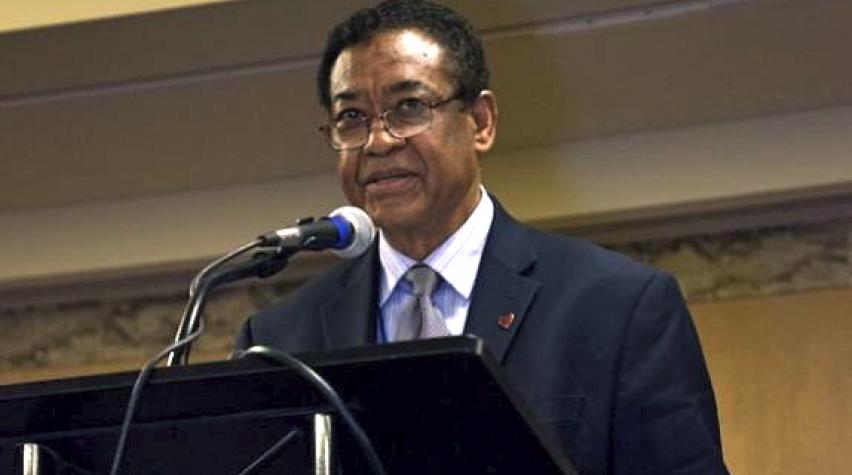
On behalf of AIChE’s Board of Directors, I wish you and your family a safe and happy new year. I am looking forward to serving you as President, and will work diligently to lead the Institute’s efforts to provide programs and services that help you advance as a chemical engineer.
Reflecting on 2013
Last year was an excellent year for AIChE. The latest forecast for our year-end finances indicates profitable operating performance based on record revenues. The Institute enjoyed best-ever attendance at the San Francisco Annual Meeting; above-budget performance for its Industry Technology Groups (the Center for Chemical Process Safety, the Society for Biological Engineering, the Institute for Sustainability, among them); and record education services earnings. Investment returns on our permanent fund and pension fund are predicted to be strong. For all of this, we owe thanks to Past President Phil Westmoreland, AIChE’s Board of Directors, Executive Director June Wispelwey, AIChE staff, and the many volunteers who make the Institute’s work possible.
The year 2013 marked the 125th anniversary of the chemical engineering profession’s receiving its definition. George E. Davis, often regarded as a founder of the discipline, was a chemist working in Manchester, England. Through his work as a manager at the Lichfield Chemical Co., and as an inspector under Great Britain’s Alkali Act of 1863 (one of the earliest pieces of environmental legislation impacting the industry), Davis identified many features common to chemical factories. In 1888, he presented his findings at Manchester School of Technology (now Univ. of Manchester), in a series of lectures that defined the chemical engineering discipline. Davis later compiled this information in the influential book A Handbook of Chemical Engineering (1901).
Also in 1888, Massachusetts Institute of Technology chemistry professor Lewis M. Norton created the first four-year chemical engineering curriculum. “Course X,” according to its original MIT course description, was designed “to meet the needs of students who desire a general training in mechanical engineering, and at the same time to devote a portion of the time to the study of the applications of chemistry to the arts, especially to those engineering problems which relate to the use and manufacture of chemical products.” In 1891, MIT’s Dept. of Chemistry granted the first seven bachelor’s degrees in chemical engineering. And, in 1908, the American Institute of Chemical Engineers was founded.
The continuous evolution of our profession
As chemical engineers, it is important that we understand some of the key factors that led to the formation of our profession. The types of industry problems that George E. Davis faced in the late 19th century could not be solved by either chemistry or mechanical engineering alone. A discipline that incorporated the broad range of technologies commonly found in chemical manufacturing was needed.
Just as the fundamental nature of our profession was first articulated in 1888, its definition continues to evolve in 2014. Today, chemical engineering undergraduates complete coursework in chemistry, fluid mechanics, thermodynamics, electrical engineering, mechanical engineering, reaction kinetics, engineering design, and process safety — to acquire the in-depth, but broad, technical knowledge needed to ensure that they can design, build, operate, and manage safe and efficient chemical plants. During the next five to ten years, while we continue to apply core chemical engineering principles to capitalize on newly discovered energy resources, chemical engineers must also progress from “lean” manufacturing to “smart” manufacturing strategies.
As chemical engineers, we all need to meet the challenges imposed by change. Together, we will work with universities and industries, in the U.S. and abroad, to develop strategies and initiatives to meet those challenges.
My primary focus as your 2014 president
AIChE is the global home for chemical engineers. As President, my primary focus in 2014 is to work on strengthening key programs that are essential for future growth of the Institute. These areas include local section revitalization, international outreach, closer partnerships with industry, education and training, and increased focus on our profession’s social responsibility. I believe that strengthening these areas will facilitate the Institute’s transformation as a global society and reinforce its value.
For example, to counteract a decline in local section membership, Phil Westmoreland and I have created the President’s Blue Ribbon Task Force on Local Sections which will make recommendations on how to improve the value of participation at the section level.
We are also working to deepen our partnerships with organizations in Latin America, Asia, and the Middle East. Our Saudi Arabia section now organizes a major conference in Bahrain. Our Center for Chemical Process Safety has expanded its activities in Brazil, Colombia, and elsewhere in South America, as well as in Australia and China. We have new partnerships with sister societies in Mexico and Taiwan, and new collaborations in India and Singapore. We are a global profession, and the need for chemical engineering expertise is growing.
We are always looking for new and better ideas to strengthen AIChE. If you have ideas to share, please e-mail me at president@aiche.org.
Note: This message is also published in the January 2014 issue of CEP Magazine.


